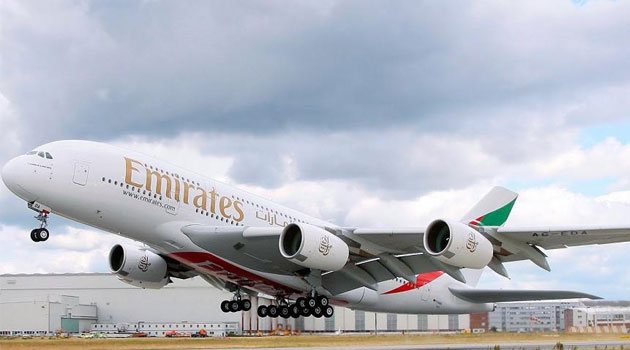Emirates is set to double its daily flights between Dubai and Nairobi starting December 15 ahead of the Christmas season when bookings surge.
The airline will fully restore its services to pre-pandemic levels by bringing back all fourteen flights on the Dubai–Kenya route, providing enhanced connectivity to Dubai and onwards to destinations on Emirates’ global network of over 130 destinations.
The four additional weekly flights will complement its existing services and grow Emirates’ seats to over 10,000 a week between the airline’s global Dubai hub and the capital city of Nairobi.
Similar to the current daily service between Dubai and Kenya, the added frequencies will be operated with Emirates’ Boeing 777-300ER aircraft, offering eight private suites in First Class, 42 lie-flat seats in Business Class and 310 spacious seats in Economy Class.
ALSO READ: KTB Appoints John Chirchir As it’s Acting CEO
From 15 December, outbound flight EK 719 will depart from Dubai at 0935 on Monday, Tuesday, and Thursday, arriving in Nairobi at 13:45hrs. The return service, EK 720 will depart from Nairobi on Monday, Tuesday, and Thursday at 15:40 hrs and arrive in Dubai at 21:40 hrs.
Similarly, Emirates flight EK 721 will depart Dubai on Wednesday at 02:10 hrs and arrive in Dubai at 06:20 hrs. The return service, EK 722 will depart Nairobi on Wednesday at 23:55 hrs and arrive in Dubai the next day 06:00 hrs.
The new double daily service will provide an important tourism boost to Kenya, safely connecting leisure travellers from the US, points across Europe, Israel, Brazil, and the Middle East to Kenya via a convenient stop in Dubai.
Apart from the increased passenger capacity, the new flights will provide around 80 tones of cargo capacity per flight, giving businesses and traders more opportunities to export fresh flowers, produce such as fruits, vegetables, and meat in addition to opening trade lanes for essential imports like mobile phones, garments, footwear and household goods.
SOURCE: Capital business

